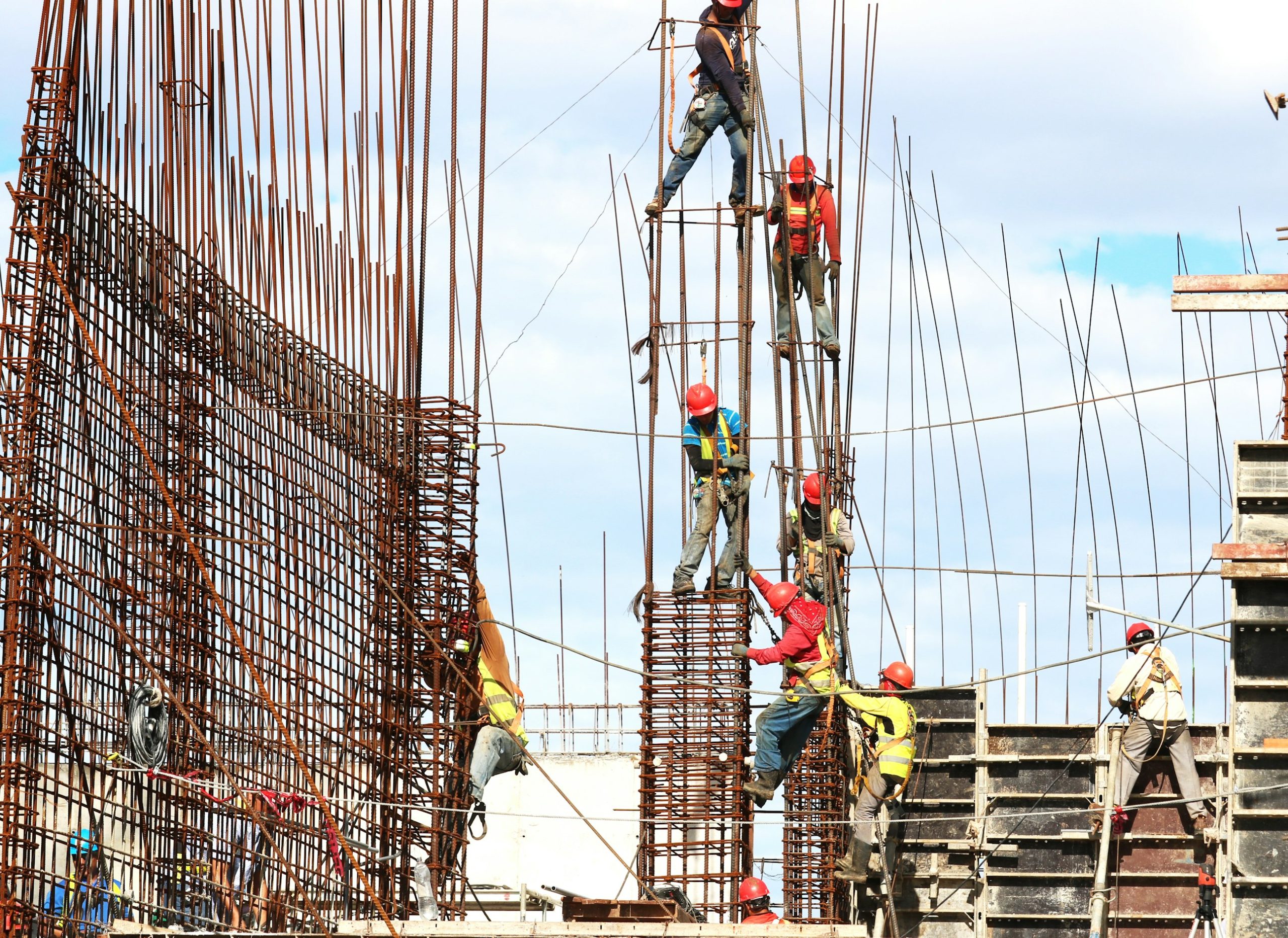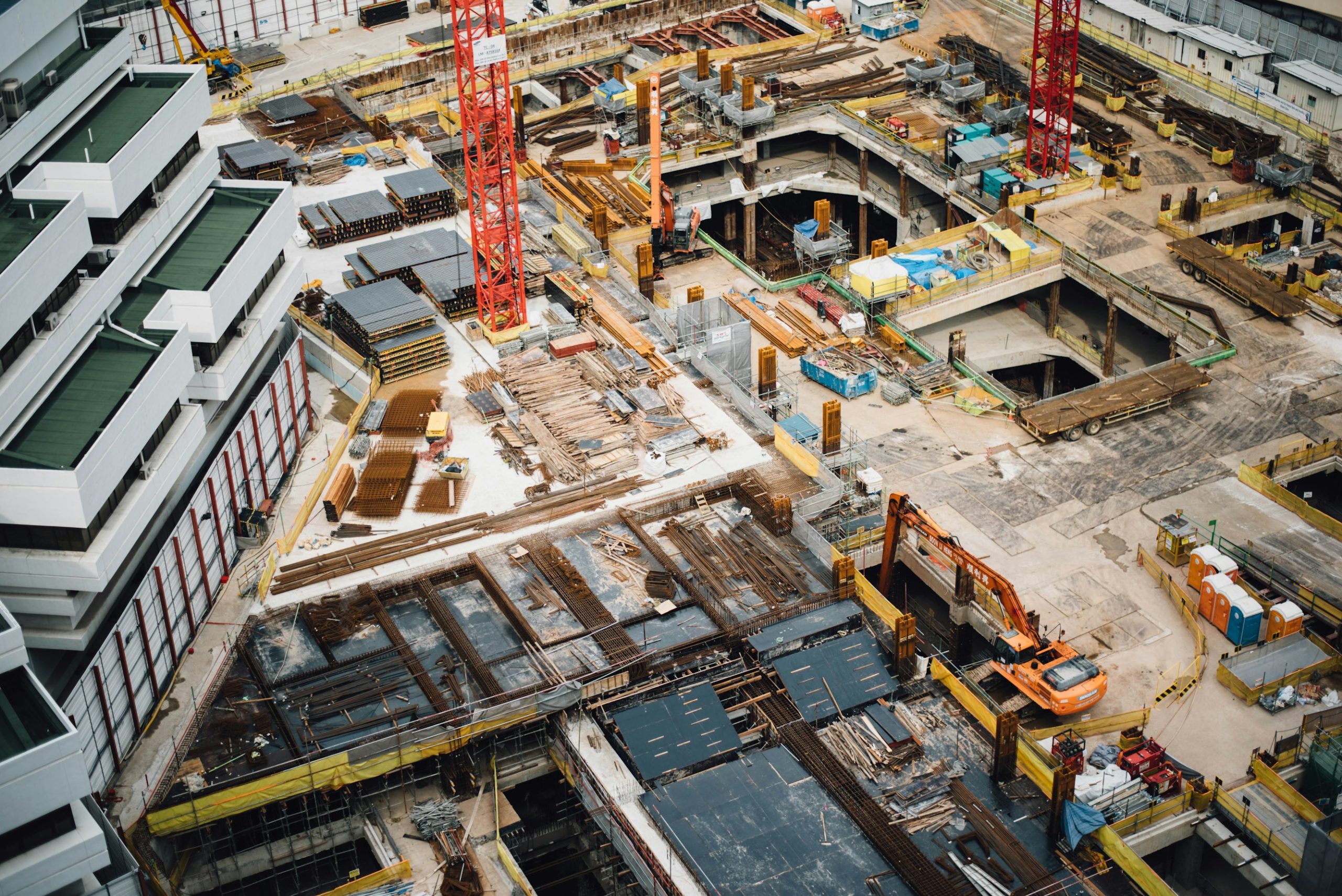Beyond AI: How Blockchain Could Reshape Construction Management
As the construction industry increasingly embraces technology, the potential for blockchain to revolutionize construction management has become evident. Blockchain technology introduces a robust decentralized, tamper-proof ledger that enhances transparency, mitigates risk, and optimizes project workflows. This post explores the myriad ways blockchain can transform construction project management, from supply chain integrity to real-time project tracking.
The Foundation of Blockchain Technology
The core of blockchain lies in its decentralized and tamper-proof ledger system. This innovative technology ensures that all project-related details, including contracts, supply chain records, and payment information, are securely recorded across a network of computers. Such a system not only enhances transparency but also significantly reduces the risks related to fraud and data tampering.
One of the key features of blockchain is the use of smart contracts. These self-executing contracts have their terms directly written into code, automating various processes such as payments and tracking material movements in real time. By leveraging smart contracts, construction companies can reduce delays and disputes, essentially streamlining their project management efforts.
Improved Efficiency in Project Management
Blockchain technology paves the way for increased efficiency in construction project management through real-time tracking and updates. It allows project managers and stakeholders to monitor progress continuously and access accurate data instantly. Early identification of potential delays or concerns can significantly enhance decision-making and resource allocation.
Automated workflows are another advantage offered by smart contracts. They ensure that tasks related to payments and project milestones are executed swiftly and securely, eliminating the need for manual intervention, thereby reducing disputes and accelerating decision-making processes. Furthermore, blockchain fosters enhanced collaboration by creating a shared platform accessible to all stakeholders—architects, engineers, contractors, and clients—enhancing communication and maximizing project efficiency.
Secure and Modernized Contracts
The introduction of automated contract execution through blockchain technology transforms traditional contract management. By operating through smart contracts, the agreed-upon terms are executed automatically, effectively removing intermediaries and diminishing the risk of contract disputes.
Moreover, blockchain helps construction companies comply with stringent regulations by securely storing all relevant documentation, simplifying audit processes, and ultimately reducing compliance costs. This commitment to compliance is vital in an industry characterized by complex laws and standards.
Data Privacy and Security Challenges
While blockchain technology promises enhanced security through encryption and decentralization, businesses must remain vigilant concerning data privacy laws. Implementing necessary access controls and encryption techniques is crucial to safeguard sensitive information from potential cyber threats.
Scalability and Performance Concerns
Despite its numerous benefits, scalability issues present challenges when managing large construction projects. As blockchain networks grow, performance can suffer, particularly in situations where speed is critical. Addressing these challenges is essential for the successful application of blockchain technology in extensive construction undertakings.
Integration with Existing Processes
For any blockchain implementation to succeed, a robust technological infrastructure is required. This entails having the correct hardware, network capabilities, and technical knowledge. Existing IT systems may need modifications or integration with blockchain platforms for an efficient transition. Establishing interoperability standards is also paramount; different blockchain systems must communicate seamlessly to enable widespread adoption across the construction sector.
Cost of Implementation
Companies looking to adopt blockchain technology must prepare for the initial investment that comes with new hardware, software, and training. For smaller construction firms, the financial barrier could deter progression despite the long-term benefits of improved efficiency and reduced operational costs.
Legal and Regulatory Challenges
Navigating regulatory compliance remains a significant obstacle in the adoption of blockchain. Construction organizations must comprehend and adhere to complex legal frameworks to achieve successful integration.
Real-World Use Cases of Blockchain
Blockchain technology holds transformative potential for several aspects of construction management:
- Supply Chain Management: Blockchain can track resources from origin to end-use, ensuring authenticity and preventing disputes. By maintaining transparent records, issues related to counterfeit materials can be minimized.
- Project Management: With real-time updates, blockchain enables consistent monitoring of project progress, enhances decision-making, and automates project milestones, ensuring secure records of changes.
- Asset Management: By creating a unified platform for accessing asset information—maintenance schedules, warranties, and repair history—blockchain enhances asset performance and minimizes downtime.
- Facility Management: Post-construction, blockchain aids efficient facility management, allowing for real-time updates and predictive maintenance while tracking carbon emissions to support eco-friendly practices.
Best Practices for Implementing Blockchain
Successful blockchain implementation within construction management requires:
- Identifying Use Cases: Recognizing suitable applications for blockchain technology in areas like supply chain management and contract administration is vital.
- Selecting the Right Platform: Diligently choosing the blockchain platform based on security features, scalability, and community support leads to deployment success.
- Building a Consortium or Private Blockchain: Deciding whether to establish a consortium or private blockchain depends on desired collaboration levels.
- Integrating with Existing Systems: Seamlessly connecting blockchain with legacy systems is crucial for ensuring continuity. This requires setting up proper data exchange protocols and interfaces.
Emerging Innovations and the Future of Blockchain in Construction
The future of blockchain in the construction sector looks promising, especially when combined with AI and BIM. These integrations pave the way for smarter decision-making and enhanced project accountability, ultimately reshaping how construction professionals operate. Moreover, continuous interoperability efforts will allow existing construction management software to effectively integrate with blockchain technology, facilitating collaboration among various stakeholders.
Additionally, blockchain’s role in sustainable construction is becoming increasingly important. By tracking carbon emissions and promoting eco-friendly practices, blockchain aligns itself with the construction industry’s shift toward sustainability.
How Zepth Can Help
At Zepth, we recognize the potential of blockchain to optimize construction management. Our project management tools can integrate blockchain technology to provide real-time updates, automate workflows, and enhance transparency and traceability in projects. This not only streamlines communication among stakeholders but also reduces delays and disputes.
Furthermore, Zepth can leverage blockchain to optimize supply chain management, ensuring material authenticity and decreasing the risk of counterfeit products. We can also assist construction companies in achieving compliance with complex regulations through secure documentation storage that simplifies audit processes.
Finally, understanding that there’s a skill gap in blockchain implementation, Zepth is committed to providing training and support, ensuring that construction organizations can upskill their workforce effectively and manage blockchain systems proficiently. In doing so, Zepth aims to enhance efficiency, transparency, and collaboration within the construction industry, aligning with our mission to improve construction management practices.
Explore how Zepth can integrate blockchain into your projects and facilitate transformative construction management processes.




